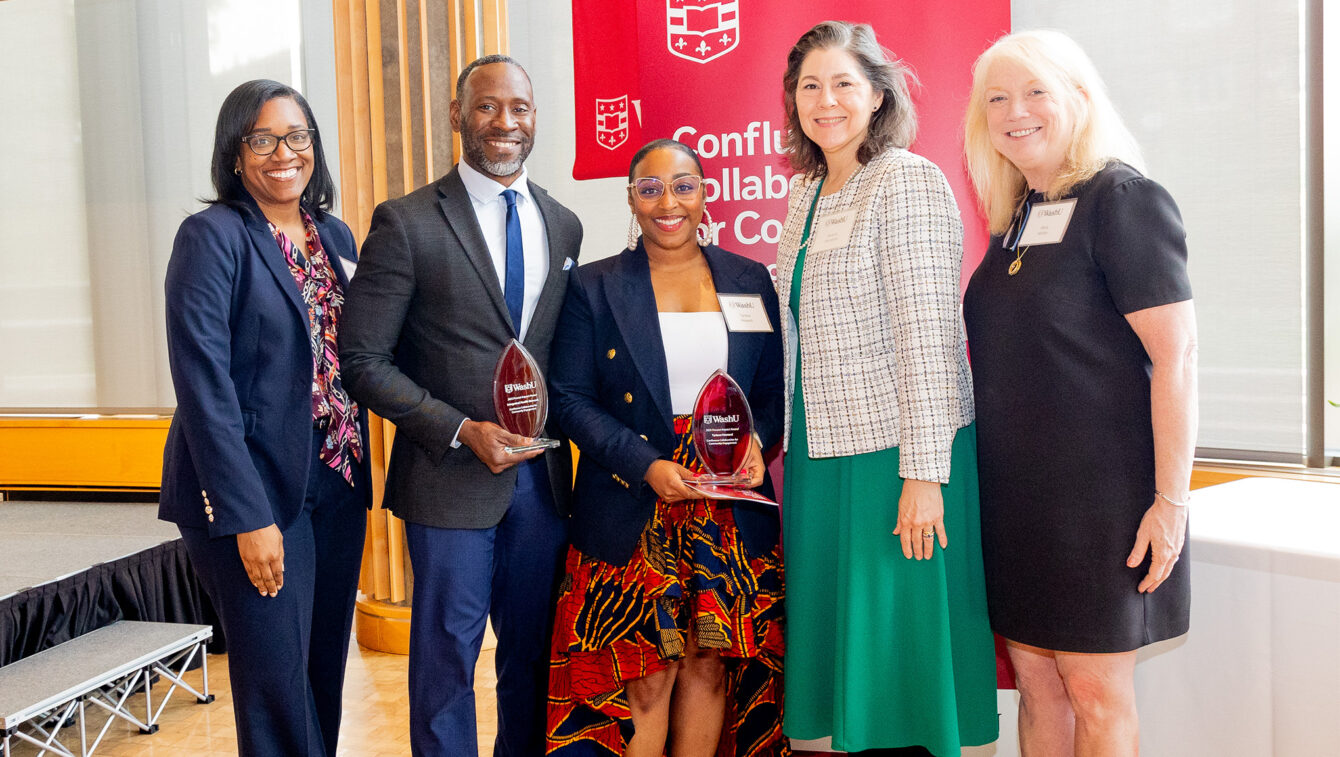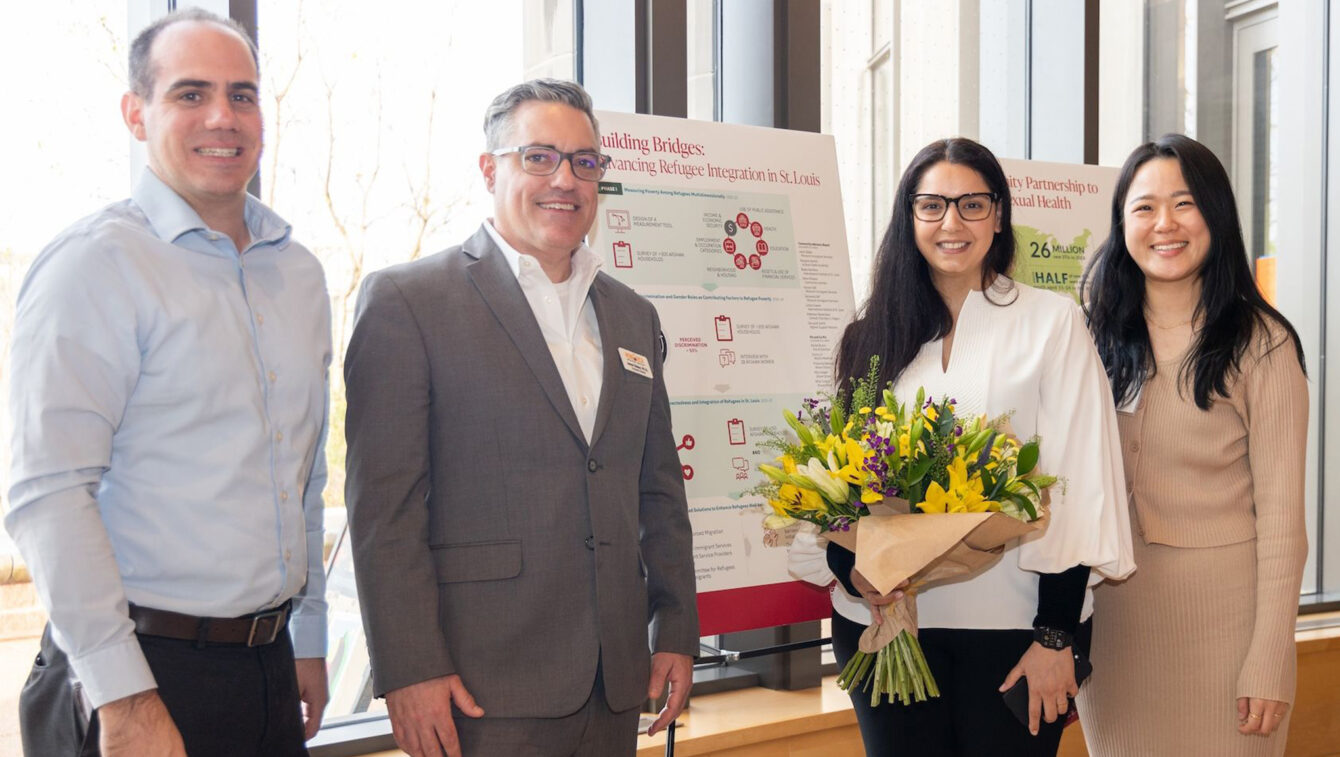Brown School assistant professors Tyriesa L. Howard and Mitra Naseh were recognized for their impactful, community-engaged research during the 2025 William H. Danforth St. Louis Confluence Award Showcase, held April 16.
The annual event, hosted by the Confluence Collaborative for Community-Engaged Research, Teaching and Practice, recognized 11 projects from among 58 nominated faculty-community partnerships across WashU.
“All of these projects share a common goal: to deliver tangible, positive outcomes that make St. Louis a more equitable and healthy region,” said Bettina Drake, director of the Confluence Collaborative for Community Engagement.


Howard received a 2025 Provost Impact Award for her project, Improving Postpartum Mental Health for NICU Families: Developing and Piloting ‘The Fathers First Initiative’ in Neonatal Healthcare Systems. She shares the award with community partner Jessie A. Davis, chief medical officer and chief strategy officer at Integrated Health Network, a healthcare intermediary focused on expanding access and equity for historically excluded communities.
Howard and Davis co-developed the Fathers First Initiative, currently based in the neonatal intensive care unit at St. Louis Children’s Hospital. The program provides social support to fathers of NICU patients, with the goal of improving overall mental health outcomes for families navigating the NICU experience.
“When we think about maternal child health and the outcomes, one of the more obvious missing pieces that we’ve recently seen, is that dads aren’t often engaged,” Howard said. “We looked at really intentional ways to consider a family-centered approach to address and support NICU families, and what we mean by that approach is to look at what it might mean to fortify dads.”
In particular, Howard and Davis are looking at improving perinatal mental health and well-being for NICU families in a more comprehensive way. Their approach includes providing parenting education, social support, and targeted training and engagement for dads. Their goal is to equip dads with a unique set of skills that can help reduce perinatal mood and anxiety disorders—particularly the stress and overwhelm that mothers and birthing parents often experience during the NICU journey.
Naseh received an honorable mention for her project, Building Bridges: Advancing Refugee Integration in St. Louis, in partnership with Monarch Immigrant Services and the International Institute of St. Louis. The project is part of the Brown School’s Forced Migration Initiative.
“This recognition highlights our continued efforts to support refugee integration in a city that is now one of the fastest-growing metro areas in the country for foreign-born residents,” Naseh said. “That growth is largely driven by refugee resettlement, and our research is focused on making sure these new Missourians are supported in meaningful ways.”
Launched in 2022, the initiative has examined refugee well-being through studies on poverty, women’s experiences, and access to services. Current work focuses on community-informed strategies to improve early-stage support for newly arrived refugees.
The Confluence Collaborative, established in 2024, supports and elevates partnerships between WashU faculty and community stakeholders to foster research, teaching and practice that directly benefits the St. Louis region.
